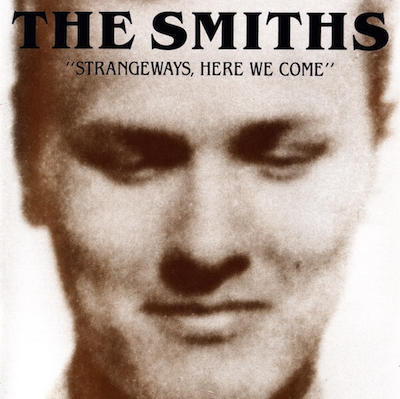10. The SmithsStrangeways, Here We Come

The Smiths are one of those bands that everybody, no matter how old you are, or what era you’re from, got into at university. They are like the universal university band because of the concepts they encapsulate. They chime with you at your most pretentious version of yourself! I certainly got into The Smiths after discovering them through a friend at university in the new millennium, but I’ve spoken to people at university before me and since in the eighties, nineties and tens, twenties – and The Smiths are a band they found, like me, at university. On stage the other night, I said ‘there’s more to life than books you know, but not much more,’ as Morrissey said and I think that’s still my mantra when it comes to how my lyrics are informed by a lot of what I’m reading and ingesting.
The idea that you can interweave – in a very different way to the Manic Street Preachers – your educational pursuits and your more intellectual interests into your music was a real revelation to me. As somebody who was a quintessentially camp person, Morrissey’s mode of speaking and approaching lyrics felt very like home to me. I feel really conflicted about Morrissey now with his right wing nonsense. There’s still a special place in my heart for a lot of The Smiths’ music, although I do find it impossible to separate the art from the artist and I don’t really put them on anymore.
The dynamic between Morrissey and Johnny Marr was certainly something that informed the way I worked with Bernard Butler on our collaborative album. As someone who tends to usually work alone, writing and producing without any interference, I definitely took on the Morrissey-Marr model. We found a very fruitful and quick way of working where he was creating these beautiful musical landscapes and I would write the music and lyrics on top.


